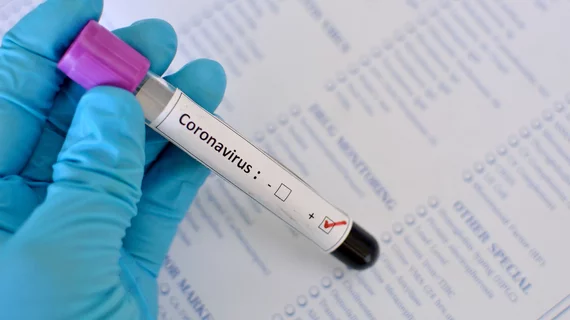Blockchain and AI could improve China’s response to the coronavirus outbreak
Since news first broke of the coronavirus outbreak, China’s government has received a massive number of donations from the public and various healthcare organizations. According to a new commentary published on the SSRN website, however, the distribution of those donations has been disorganized—and advanced technologies such as blockchain and AI could help prevent such issues.
“The present crisis is a call to arms for China’s tech industry, which has the know-how and resources to radically change the landscape of crisis response and the management of donations through the implementation and use of blockchain and AI,” wrote author Syren Johnstone, executive director of the Master in Laws program at the University of Hong Kong. “Together with global technologists, fundamental changes are needed to the structure and method of how such crises are handled. The time to develop, on a collaborative basis, borderless solutions to issues of common humanitarian concern is now.”
Johnstone noted that problems with managing disaster-related donations are common throughout the world—penicillin was stolen during World War II, for instance—but it is even worse in China because donations are required to be funneled through five government-backed charity organizations.
How could blockchain and AI help make a difference? Johnstone covered each one separately in his analysis.
Blockchain
“Blockchain is relevant because it is a superior tool for tracking and verifying the origin, journey and use-destination of pretty much anything,” Johnstone wrote. “It can be applied to donation dollars or N95 masks.”
Blockchain helps users maintain a “digitally secure record” that can’t be changed at a later date, and that record is stored across multiple computer servers to keep it as protected as possible. This could help China’s government-backed charities record and track every item that is donated, and it would even allow receipts and signatures to be stored as needed.
“The same can be applied to funds that are donated, particularly as most funds are now typically donated through e-payment channels which could be digitally connected into the blockchain writing process,” Johnstone added.
Another point in blockchain’s favor is that visibility can be shared with the public, allowing individual citizens to track their specific donation and see how it is being used.
AI
Charities looking to donate goods and services in the face of a major disaster are left with numerous questions that need to be answered. What items should be donated? And what quantities? Also, should those numbers reflect the crisis as it stands at the time of the donation—or should the charity look ahead and think about what might be needed weeks or months down the line?
“The foregoing obviously requires expert judgements and the integration of considerable amounts of data that is, so far as infection data is concerned, not only subject to rapid change but is inevitably out of date,” Johnstone wrote. “This is the context where AI can be employed to assist humans to determine optimal outcomes.”
"We need to learn now"
These issues with organization and management, Johnstone concluded, must be addressed immediately. The coronavirus outbreak is still ongoing—why can’t solutions be put in place now? There is no reason to delay putting in the work and developing real changes that can make an impact.
“We need to learn now, learn fast, and engage technology to make the difference,” he wrote.

